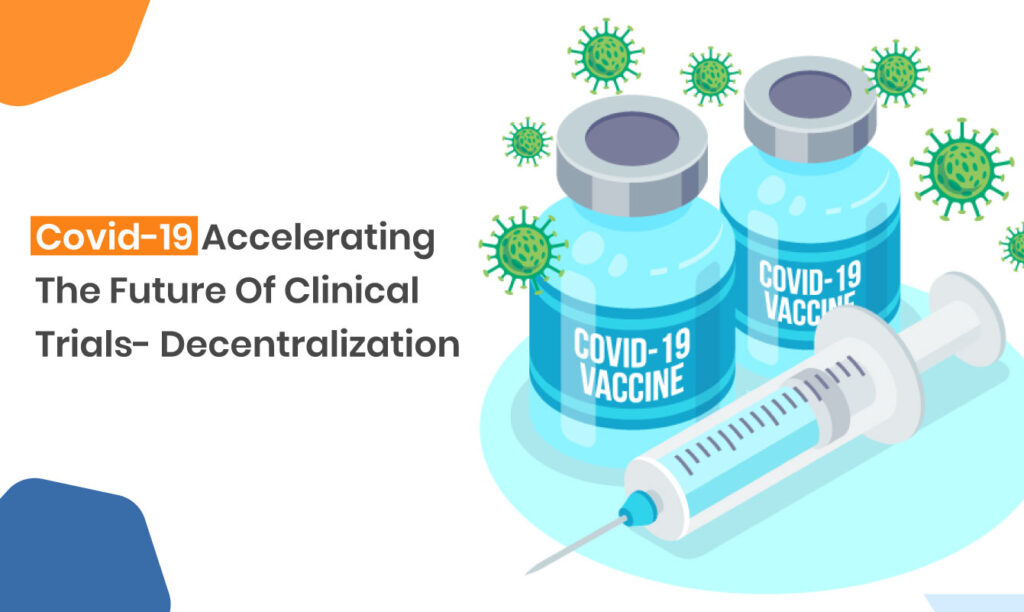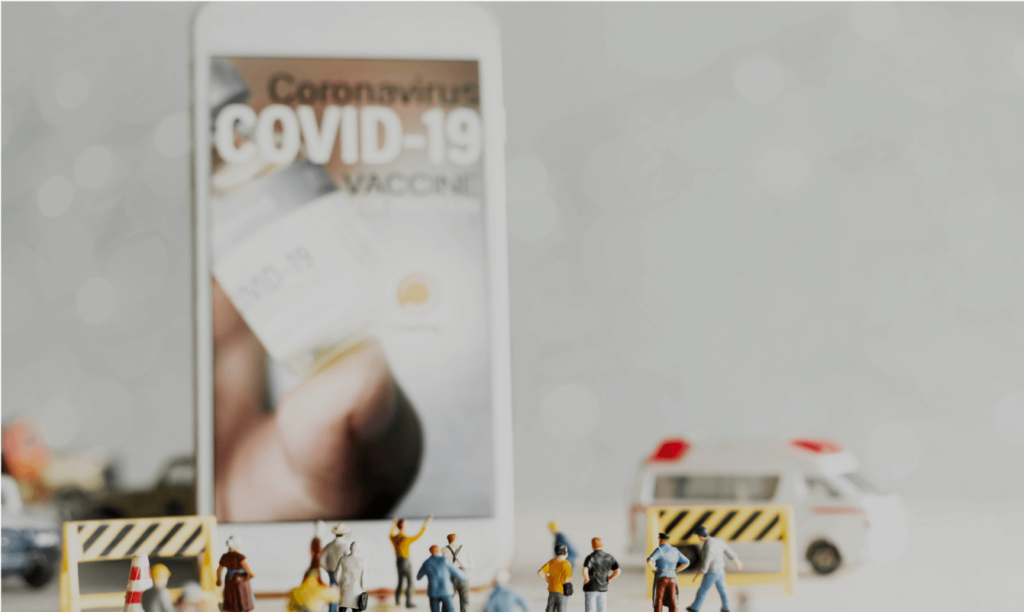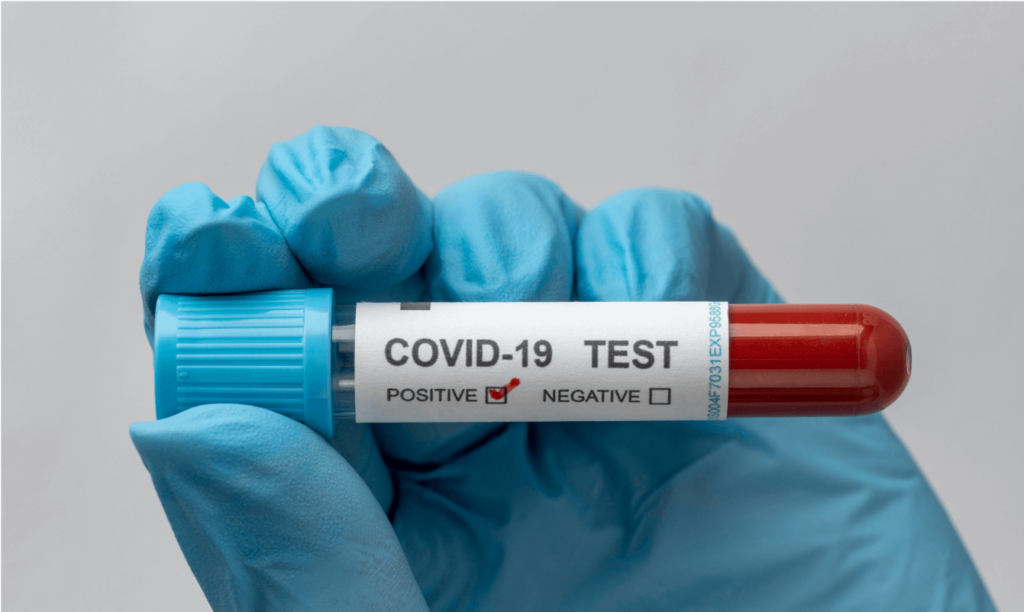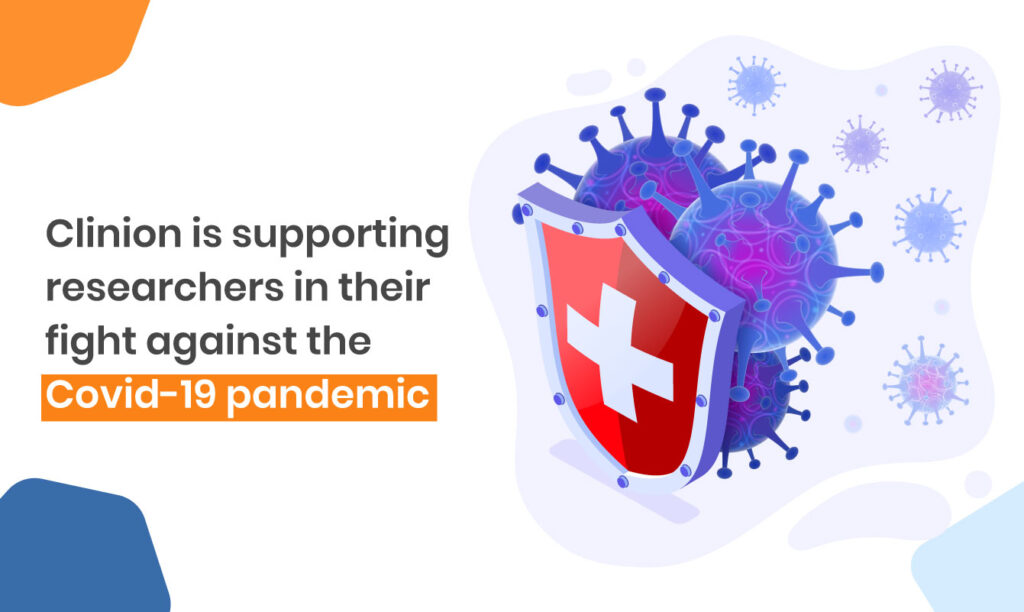Covid-19 Accelerating The Future Of Clinical Trials- Decentralization

Recent Articles Simplifying eCRFs: A Look at the Future of Clinical Data Management July 8, 2024 Read More AI in Clinical Trials: Key to Accelerated Timelines & Reduced Costs July 29, 2024 Read More AI-Powered Clinical Data Validation: Ensuring Accuracy, Efficiency, and Compliance September 21, 2024 Read More Covid-19 Accelerating The Future Of Clinical Trials- Decentralization Clinion Team / June 2, 2021 Formulated on the advancements in the field of drug development, the pharmaceutical industry has been progressing at a rapid pace. But despite significant investments in the development of modern therapies and treatments, the overall efficiency of pharmaceutical R&D efforts have been declining steadily. The increasing timelines and costs associated with clinical trials has been widely recognized as a key contributor to the trend. Factors Paving the Way for Decentralization of Clinical Trials The pressure of the current epidemic has brought into greater focus the need for revolutionizing the functioning of the pharmaceutical sector. Vaccine development has set the benchmark for the development of effective medicines at a hitherto unseen, unprecedented speed. The lessons being learnt during the pandemic offer rich insights into the future course of the clinical research industry including insulation from further major disruptions. Decentralized Clinical Trials (DCT) are predicted to offer an implicit defense against major disruptions. DCTs are defined as studies “executed through telemedicine and mobile or local healthcare providers, using processes and technologies that are different from the traditional clinical trial model.” However this does not imply performing clinical trials without the supervision of healthcare professionals, rather its about looking at areas where technology and other novel solutions can enable sponsors and CROs to take a more practical approach towards designing clinical trials that can provide an alternative to the current site-anchored, inflexible system which often results in a high patient drop out rate. Hence, keeping in mind the challenges of the traditional trial concepts as well as the ones faced by the new decentralized practices, a resolution has been sought in Hybrid trials that have since emerged as the new paradigm for conducting clinical trials. Benefits and Challenges of Decentralized Clinical Trials Patient availability and participation have turned out to be persistent problems in the conventional model. The goal of modernizing clinical trials is to make it easier for subjects to participate in trials by reducing the need for them to visit specific sites. Benefits Increased patient engagement Decreased study costs and timelines Stramlined data collection Easier recruitment efforts Better access to diverse patient populations Challenges Patient safety Privacy factors- Technology glitches or failures IP delivery, management and processing High volumes of patient data Data from various monitoring sources and wearables. Statistics have revealed that 70% of patients reside more than two hours away from research sites. In 50% of clinical trials, participants find it difficult to stay enrolled due to poor health and the majority of trials fail to retain enough patients till the end. Remote trials technology helps in reaching out to a diverse population, lessening their physical efforts at participation. Although decentralization addresses a majority of these difficulties faced by site based trials, there are certain barriers that cannot be overlooked. While it’s important to be aware of all the challenges, the benefits decentralized trials offer for patient recruitment and retention outweigh the potential risks which – with efficient partners, vendors, and planning– can be sufficiently mitigated. Case Study Revelations These numbers are highly encouraging as it exhibits the willingness of patients’ to participate using remote trial technology. Decentralised Clinical Trials – The Future of Clinical Research There is no doubt about the fact that virtual and hybrid trials have gained momentum since they were first introduced. The industry is working relentlessly to identify tools, infrastructure and collaborations required to enable trials that are more patient-centric than site-centric. The desired partners will be CROs that have diverse potential in drug development and beyond, have the technical prowess to generate insights with their data which will enable them conduct more efficient clinical trials. Want to Improve Patient Engagement and Retention? Decentralise your trials now! Request a Demo
4 Benefits of using Clinion eCOA

Recent Articles AI-Powered Clinical Data Validation: Ensuring Accuracy, Efficiency, and Compliance September 21, 2024 Read More AI in Clinical Trials: Key to Accelerated Timelines & Reduced Costs July 29, 2024 Read More Simplifying eCRFs: A Look at the Future of Clinical Data Management July 8, 2024 Read More 4 Benefits of using Clinion eCOA Clinion Team / September 29, 2020 There are many benefits by using Clinion eCOA During the COVID-19 Pandemic During the ongoing COVID-19 crisis, CROs and Pharmaceutical companies are facing myriad of challenges. Many clinical trial studies have either slowed down or completely stopped due to the ongoing crisis. With medical staff directed to support the growing need for health workers, hospitals have little to no resources to spare for any other activities. COVID-19 Vaccine / Medicine Studies and Our Learnings from it Clinion has supported many companies to run their clinical trials operations during the pandemic. This includes multiple therapies as well as Bharat Biotech’s COVAXIN studies. During these tough times, companies are facing multiple challenges. Our integrated platform helped these companies manage their entire clinical trial process with: Minimal interpersonal contact High efficiency High data accuracy Our eCOA solution played a critical role in enabling companies conduct these clinical trials without interruptions. Below are some benefits of using integrated Clinion eCOA for clinical trials. Reduce clinic visits and improve patient safety during pandemic It is a known fact that patients must visit the hospital (research sites) for regular checkups. These visits help researchers understand the effects of medication, side affects and general health checks. During the pre-pandemic times, researches tabulated this data and captured it in the appropriate format before sending it for analysis. However, patients’ risk of exposure to COVID-19 increased due to their scheduled clinic visits. With growing risk, lesser number of patients are venturing out to participate in the trials. With eCOA, our clients were able to capture all the details via a simple and light-weight mobile app. This information is tabulated and processed the same way researchers did earlier. The app is designed to capture the information in a detailed and methodical manner to make sure there is no ambiguity in the quality. With this app, patients can now share this information with researchers from the comfort of their home. Improved patient engagement Manual documentation of patient’s response to the medicine / vaccine can be done only during patient visits. These visits might not be as frequent as the researchers want them to be. As the patient must physically travel to the test site, information captured will be restricted to the frequency of these visits. With eCOA, you can design the app to capture the information as frequently as required. This will help researchers collect data much more frequently with the patient never leaving home. Conduct Decentralized Clinical Trials Decentralized clinical trials depend predominantly on IT infrastructure and eCOA plays a vital role in it. In traditional trials, there is a considerable burden on the patients to prepare and travel to the test site and meet the researchers. With eCOA powered decentralized trials, companies can collect clinical data without compromising on quality. It also opens up the opportunity to recruit patients from remote locations, increasing the chances of faster recruitment and reduces dropout rates. Create alerts for patients for various trial related tasks Using eCOA, our clients have also created regular alerts for their users. These alerts can be scheduled to remind the patient of the time and dosage of his medication and also remind him of a regular site visit. These alerts increase the participation from patients resulting in better accuracy of the study results. Conclusion CROs and pharmaceutical companies today have a myriad of tools at their disposal. By deploying these tools effectively, CROs can effectively combat various challenges ahead of them including the COVID-19 pandemic that is slowing down clinical trials. You can contact us to understand more about how you can manage your clinical trials with our suite of solutions including eCOA. Contact us on sales@clinion.com. Want to See How Clinion eCOA Can Help You Decentralise Your Next Trial? Request a Demo
3 Reasons Why Leading CROs & Pharma Companies are Choosing Us for COVID-19 Studies

Recent Articles Simplifying eCRFs: A Look at the Future of Clinical Data Management July 8, 2024 Read More AI in Clinical Trials: Key to Accelerated Timelines & Reduced Costs July 29, 2024 Read More AI-Powered Clinical Data Validation: Ensuring Accuracy, Efficiency, and Compliance September 21, 2024 Read More 3 Reasons Why Leading CROs & Pharma Companies are Choosing Us for COVID-19 Studies Clinion Team / September 01, 2020 With COVID-19 unleashing catastrophe across the world, everyone is looking up to pharmaceutical companies to come up with a solution. Pharmaceutical companies are currently racing to create vaccines to slow down and potentially eradicate the ongoing pandemic. It is hard to remember when a progress of vaccine development made it to the news and to the speeches of political leaders. With so much pressure on them, pharma companies need the best of the solutions to achieve this. There are many EDC platforms in the world today. However, when it comes to quick scale in clinical trials, many factors come into play and not many solutions are up for the challenge. Pharma and Contract Research Organizations (or CROs) need solutions that they can depend on. How Clinion is Enabling CROs and Pharmaceutical Companies Over the past six months, we have been actively reaching out to CROs and Pharmaceutical companies to offer our integrated solution. As we started enabling various COVID-19 vaccine and medicine studies, we started extending our learnings to other studies that started later. We are currently: Helping 6 different companies conduct clinical trials for vaccines and medicines Helping these companies conduct more than 13 studies across the world Helping Bharath Biotech conduct their clinical trials for COVAXIN Setting up one study that comprises of more than 15,000 subjects Key Reasons for Using Clinion for COVID-19 Studies Here are some reasons why Bharat Biotech chose Clinion’s Integrated platform to manage their clinical trial studies. Tried and Tested Solution This is not the time for CROs to test new systems. With so much riding on their studies, CROs are looking for systems that are used by some major CROs in the market. Many leading CROs like JSS, CBCC, Clinnex etc., are using our solution. They have run numerous studies on our platform without a hitch. These companies have found our solution scalable and robust enough to handle large study groups. Clinion product users find our platform intuitive and easy to learn and use. Time Sensitive This is probably the most important aspect of a COVID-19 study. Studies have gone live on our platform in just 10 days. Most platforms in the market today take at least 3 weeks or more to go live. We’ve helped our clients conduct more than 250+ studies on our platform. This experience has helped us create a platform that is easy to use, intuitive and can setup a study in a very short period. Cost Effective CROs are looking for cost effective solutions. Our solution provides all the key components required for a COVID-19 study upfront as part of single license. We also provide multiple additional components that are tightly integrated with our platform. A CRO or a pharma company can pay and use only what they need. Benefits of an Integrated Platform CROs across India and abroad have been using EDC systems for clinical trials for a long time and are well aware of the various benefits of using one. However, the benefits of an integrated platform are yet to be fully understood. Below are some of the benefits of having an integrated eClinical platform. Integrated EDC & IWRS Study randomization is a vital aspect of a clinical study. Clinion’s integrated IWRS solution can help set up complex randomization studies very quickly and with minimum effort. By integrating seamlessly with the EDC, data from EDC can be transferred to IWRS and vice versa in a safe and secure manner. Integrated EDC & CTMS CTMS brings out the true value of the study conducted, while giving the sponsors the ability to understand how the studies are being conducted. Our CTMS system is built to bring various data points like: · Subject Recruitment Status · Project Planning and Management · Site Monitoring · Document Management System · Study Safety Reporting By integrating CTMS with EDC, this information can be readily available. This can enable sponsors and CROs to view real-time study status, manage IP efficiently and manage project budgets and expenses efficiently among other things. Integrated eConsent & eCOA Subject Consent is a key regulatory requirement. By having a mobile app based eConsent form, CROs can onboard subjects virtually. This has come handy in many COVID-19 studies that have been conducted recently. Additionally, our eCOA allows remote collection of patient data using their own devices. The patient data is synched to the EDC for the site personnel to monitor and review. Conclusion While Indian Pharma companies and CROs do not have a dearth of talent to create a vaccine for COVID-19, they deserver all the help they can get from their IT partners. For demo of our products, please contact us on sales@clinion.com. Want to See Industry’s Most Integrated eClinical Platform in Action? Request a Demo
Clinion is supporting researchers in their fight against the Covid-19 pandemic.

Recent Articles AI-Powered Clinical Data Validation: Ensuring Accuracy, Efficiency, and Compliance September 21, 2024 Read More AI in Clinical Trials: Key to Accelerated Timelines & Reduced Costs July 29, 2024 Read More Simplifying eCRFs: A Look at the Future of Clinical Data Management July 8, 2024 Read More Clinion is supporting researchers in their fight against the Covid-19 pandemic. Clinion Team / May 31, 2020 h2 title goes here The Clinion EDC platform is being offered to researchers at a discounted price in their fight against the Covid-19 virus. As of May 15, Clinion is already supporting multiple Covid-19 studies. We have developed a mobile Electronic Clinical Outcome Assessment (eCOA) application within a span of 2 weeks to manage decentralized patient participation and remote monitoring of subjects. The mobile platform takes care patient enrolment, eConsent and Symptom tracking. The mobile application is integrated with Clinion’s Electronic Data Capture (EDC) system. Investigators and study personnel can monitor patients in real-time and reach out to them proactively. Clinion EDC and eCOA mobile platform is available for researchers around the world for rapidly configuring and deploying Covid-19 studies. Want to know more about Clinion’s AI-Enabled eClinical Platform Request a Demo
Why Implement an FDA 21 CFR Part 11 Software System

Recent Articles Simplifying eCRFs: A Look at the Future of Clinical Data Management July 8, 2024 Read More AI in Clinical Trials: Key to Accelerated Timelines & Reduced Costs July 29, 2024 Read More AI-Powered Clinical Data Validation: Ensuring Accuracy, Efficiency, and Compliance September 21, 2024 Read More Why Implement an FDA 21 CFR Part 11 Software System Clinion Team / January 23, 2020 To be compliant with US FDA 21 CFR Part 11 regulations, CFR Part 11 validation of electronic data management systems is mandatory. In simple terms, any computerized system involved in the clinical research process must comply with FDA 21 CFR Part 11. What is US FDA 21 CFR Part 11? It is basically part 11 of Title 21 of the Code of Federal Regulations. This sets rules as to how any company implementing digital signatures and electronic records capturing or dealing with clinical data must comply with FDA regulations. Established in 1996, Part 11 has had several versions released to keep abreast of the technology. The primary motive of this regulation is to ensure the security of data records and management of storage, retrieval, and distribution of sensitive and confidential digital records. What are the benefits of FDA 21 CFR Part 11 validation A paper-based system is not practical for a company who has branches worldwide. Data access across multiple offices by multiple staff is possible only through a robust and reliable electronic system. Some requirements of maintaining electronic records as per FDA regulations are: System Validation A prerequisite of part 11 is a validation of the electronic systems to maintain accuracy, consistency, and reliability of data. All elements and their functions are clearly defined. Validation also calls for the system owner to maintain all documentation of the requirements and testing. Record Generation All records prevalent in the system will be accurate and easily retrievable. Part 11 requires that records must have an index and search facility with results showing the entire access history along with digital signatures. Audit Trials Audit trails are secure and time-stamped ways to keep track of date/time of actions that edit, delete or modify data records. All processes are well-documented and have an audit history for audit trials to be successful. Operational Checks Operational system checks are performed to ensure that crucial system functions are in sequence. A proper workflow is followed for all operations. Data entry precedes its review. Quality checks are in place and all documents are reviewed by assigned individuals before they are approved. Security Checks through electronic signatures Entry and access to the electronic system are controlled via login ids, passwords, and digital signatures. The system will specify the number of people authorized to modify the records. This information must be tracked until the final version is locked in. Digital or electronic signatures are a significant part of FDA 21 CFR Part 1. A digital signature is computed based on the authentication of the originator, determined by a certain set of rules. This ensures verification of the identity and integrity of the data. The system administrator can grant and revoke digital signatures to prevent fraud. Training Part 11 also requires that all users of the electronic data system are provided with enough training to perform their designated tasks. All users and their training procedures must be documented. Although FDA 21 CFR Part 11 compliance is a complex task, it helps to simplify the complex electronic system maintenance. Implementation of the FDA 21 CFR Part 11 software system will be worth the investment as it will bring in significant efficiency to the whole development process.

